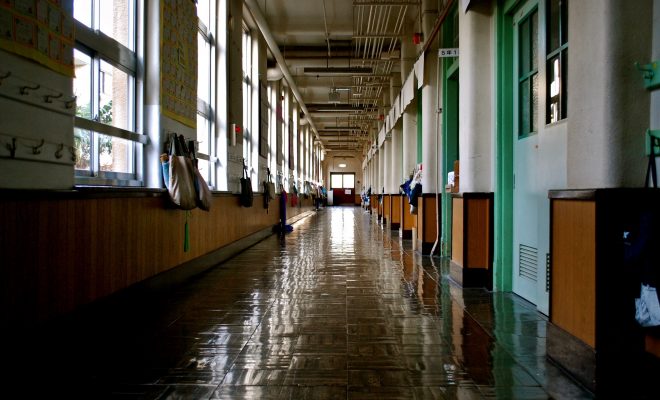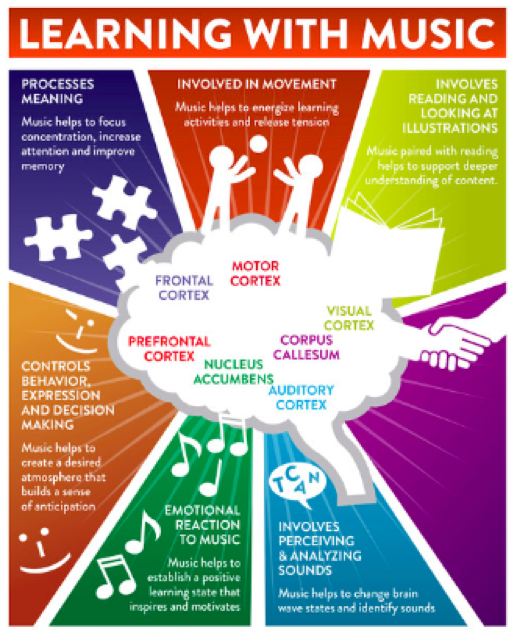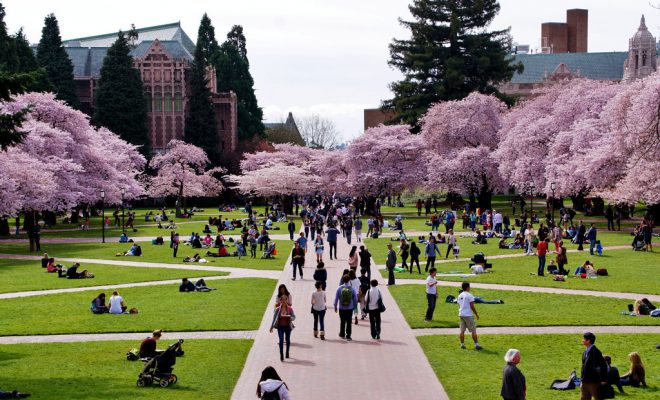How Did We Get Here? Part VIII: Minority Education in America

This is one of a multi-part series on the progression of education policies in the U.S. from its founding. Click here to see a list of all the posts in this series.
By Matthew Lynch
The recounting of education to this point has been just one side to the American story. There are, of course, many other parallel versions of exactly how the youth of America have been educated since the founding of the nation. Perhaps the most impactful, and telling, is the history of how black children, during and following slavery, have fit into the educational system.
In the earliest American days, there were no public school options available to black children. Even states that did not have slavery did not offer public education to residents who were of color. In Southern states deeply entrenched in slave culture, the education of black children was actually illegal. White slave owners believed that literacy and knowledge would threaten the slave system and so laws were passed to forbid it. For example, in South Carolina a sum of one hundred pounds was demanded of anyone caught teaching a slave to read or write. Teacher Margaret Douglass was taught teaching slave children in Norfolk, Virginia and was sent to prison. African American educator and Presbyterian minister John Chavis operated an elite white day school in North Carolina, and a secret school for black children in the evening, despite it being expressly outlawed.
Slavery laws aside, the first 50 years following the signing of the Constitution were not particularly educationally-focused for children of any race. For black children, there were some limited educational options in the form of religious schools. The exact intent of these schools was likely more about conversion than bringing equality to black Americans through education, but the learning scenarios did exist. The French Catholics in Louisiana had schools established for black students as early as the 1600s, and the Pennsylvania Quakers would follow suit in the 1700s. The first African Free School opened in New York City in 1787 with the express mission of educating black children in order to bring them educational equality with their white peers. Like other schools of the time period, the African Free ones began as one-room schoolhouses. Public funds began being funneled to these eventual seven schools in 1824 – an extreme departure at the time.
Public schools for slaves and free black children in larger numbers began to pop up in the 19th century. The state of Maine was the first to grant public school privileges to students of all races in 1820, and Rhode Island voted to do the same in 1843. In 1849, young Sarah C. Roberts sued the city of Boston for not allowing black students like her to be in public schools. She lost her case, but just seven years later the Massachusetts legislature changed the state policy to make it illegal to refuse any public school student based on race. Black teachers at public schools made less than their white counterparts – with the exception of in Washington D.C. where teachers were considered federal employees and were paid the same regardless of where they taught.
Even when public schools opened doors to black students, they were separated from their white peers, thus establishing the practice of segregation in America’s public schools. Following the Civil War, states were required to provide public education to black students, thus ushering in the establishment of Jim Crow laws pertaining to education. These practices followed the law when it came to providing a public education to black Americans, but kept black students separate from white ones. The phrase “separate but equal” was floated around as justification for the segregation but public schools were far from equitable.
Schools for black children lacked in resources throughout the country and overcrowding flourished despite there being many less black children in school than white ones. As far back as 1900, Virginia black schools had 37 percent more students than white ones (not more students overall, just more students per school building) and in the late 1930s, black school properties were valued at only one-third of white ones.
It’s interesting to take pause here and consider the fact that for all the strides public education has made in equality in the past 150 years, schools with majority black populations still tend to be the most overcrowded and underfunded. In the summer of 2013, the Chicago Board of Education voted to close 50 public schools in the city. Of the students impacted by the school closures, 88 percent were black and 94 percent came from low-income households. Those students were then sent to other schools, further crowding them and being uprooted from their school surroundings. During the school year ending in 2011, there were 670 New York City school with student-to-teacher ratios above accepted, contract levels – the majority of which serve minority students[v]. Overcrowding is still a very real problem when it comes to the nation’s black and disadvantaged students, despite the guise of public, equitable schools.
The results of limited black public and private primary education in the 19th century were the first black American college graduates. Following the end of the Civil War, the first “black” colleges were established and by 1900, more than 2,000 African American students had earned college degrees. It’s interesting to note that despite a dramatic rise in that number over the next century, it was not until 1985 that Harvard University finally appointed its first black tenured professor.
Black students are not the only ones who have faced disadvantages when navigating the educational system of the U.S. While K-12 students today may learn that the Brown v. Board of Education ruling in 1954 was the final injustice in America’s public schools to be struck down, the journey toward true equality in education has still been laborious and 60 years later, has still not been achieved.
There is still an achievement gap between white students and black and other minority students. The National Assessment of Educational Progress consistently finds large achievement gaps, or lags in academic success between one student demographic and another, between white students and minority ones. The latest comprehensive data is from 2009 and shows that there is a 26 percent gap in achievement in both mathematics and reading between fourth- and eighth-grade Hispanic students and their white peers. For Black students, the numbers were similar. Reading scores saw an achievement gap of 27 percent for fourth graders and 26 percent for eighth graders, and in math Black students had an achievement gap disadvantage of 26 percent for fourth graders and 31 percent for eighth graders.
Since the laws are in place to prevent inequality from infringing on K-12 education, why aren’t they working? Is there some unspoken prejudice against minority groups that is keeping each generation of K-12 students from achieving as much as their white peers? Though there are certainly plenty of conspiracy theories out there, the truth is much more complex.
Minorities have always had a tough go when it comes to achieving equality, in education and otherwise. Think back to the large Irish immigration of the late 19th century. This group of people in search of basic needs like food, shelter and religious freedoms faced an uphill battle when arriving on U.S. soil. The prevalence of the Catholic school system today is due in part to the need for the institutions when Irish children were refused an education, or severely bullied or discriminated against, in public or other private settings. Generally speaking, first-generation immigrants and their children have less, live in poorer neighborhoods and struggle on a greater scale with assimilation and language barriers. This is nothing new but it does impact the contemporary students in today’s classrooms.
The Hispanic population in the U.S., for example, grew 43 percent from the 2000 to 2010 Census reports, which was more than half of the total U.S. population increase 10. These students arrive in American classrooms and are already at a disadvantage to their peers who were born and raised on U.S. soil. Language, social and cultural barriers exist. And yes, there is some outright prejudice and discrimination too. The difference between these first-generation American students and the ones from a century ago is that fanning the flames of underachievement and intolerance are no longer acceptable – which gives them an advantage over their immigrant predecessors and leaves at least a glimmer of light that achievement gaps can be narrowed, or eliminated.
Differences in achievement of minorities are also based on simple logistics. In most states, public school selection is based on location – making true integration of the races impossible. Most Black students are still segregated to schools in predominantly black neighborhoods, and Hispanic ones tend to gravitate toward inner-city and urban schools that deal with larger issues of overcrowding and underfunding. Even if they minorities attend “white” schools, they are not quite at home in the surroundings. The basic public school principle of schooling students in their own neighborhoods or districts, which seems logical and smart on the surface, has actually led to segregation and unfair educational opportunities.
Some of the barriers that districting have put up are starting to come down due to states like California and New Jersey allowing for intra- and inter-district options for students. The implementation of public charter and magnet schools, or privately-run schools that use state funding and are tuition-free, have also given black students more options when it comes to choosing their schools, instead of being confined to the ones in their neighborhoods. The jury is still out on whether these tactics actually help the minority community as a whole, or hinder it. Is fleeing public schools, and trying desperately to escape disadvantaged neighborhoods, for the betterment of these communities – or does it undercut the community that already exists and bring it down even further?
Can we come up with solutions to the U.S. K-12 public school system that address the less-than-stellar history of education that has been unkind to minorities? I believe that we are just a generation or two away from truly reaching an equality point – we just need to continue to acknowledge that a problem exists and concentrate efforts on remedying it. Follow my series on the progress of the U.S. educational system to learn more about where we’ve been, and where we need to go, as collective educators.





